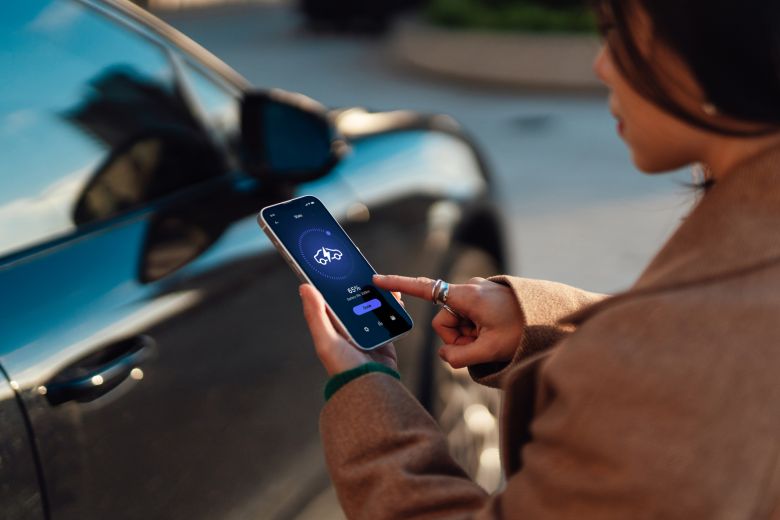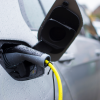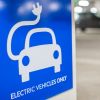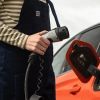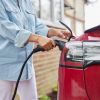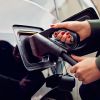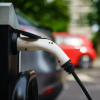The RAC Foundation has found that around two-thirds of Britain’s most common type of public chargepoints for EVs are suffering limited mobile signal connectivity – impacting the time it takes to get drivers back on the roads.
According to the charity, the failure to design public chargepoints to work around Britain’s patchy mobile signal coverage means drivers of electric cars could be facing problems when recharging their EVs.
Furthermore, Department for Transport and ZapMap data discovered that there were 53,677 public charging devices in the UK at the start of 2024.
However, 31,910 of these chargepoints have speeds up to 8kw and almost all will be so-called Type-2 chargers.
The challenge for EV drivers is that chargers below 8kw are not obliged to provide for contactless payment.
The report showed that most chargepoints in the UK require drivers to access them via mobile phone apps in order to make payment.
Mobile network providers EE, O2, Three Mobile, and Vodafone control the coverage across the country.
- Electric cars – a definitive guide and tips for buyers
- The road to electric – in charts and data
- Electric car charging prices at public rapid chargers
Research from the RAC Foundation showed the concerning state of mobile coverage for EV drivers.
The charity tested 2,059 Type-2 public chargers across the country to see if they had suitable mobile network coverage in order to pay for recharging their vehicle.
Worryingly for EV owners, drivers outside of London, only 33.4% of the Type-2 chargers analysed are in locations where there is acceptable all-network 4G coverage.
The test also found that 66.4% are in spots where a signal from one, two, three or even all the providers is absent or too weak to work.
For EV owners in the capital, there is a slight improvement with the data showing 39.7% acceptable chargers vs 61.3% that are not good enough.
Following the release of the data, Steve Gooding, director of the RAC Foundation, said: “Drivers of vehicles fuelled by petrol and diesel are used to reliable and hassle-free filling up at any of the 8,400 forecourts across Britain. The same cannot yet be said of topping up the battery of an electric car at a public chargepoint.
“In many instances the mobile phone has become the key to unlocking the potential of the electric car. Unfortunately, that key does not always work.
“The mobile phone is already deeply embedded in our daily lives, not least when it comes to driving where we rely on a good mobile connection to inform our sat navs, pay for parking and to unlock electric chargers.
“But all these systems need to be designed with an eye sharply focused on real-world network coverage, which is often patchy, sometimes non-existent, and not about to become infinitely better.
“Where signal connectivity at a chargepoint is a problem drivers might conclude that the charger is at fault hence undermining the confidence we should be building in the reliability of public charging options for electric vehicles.
“What’s more, the poor connectivity won’t get picked up in the new mandatory reporting system applying only to the rapid charger network.
“In order to design reliable connected services that work for motorists we need a better approach to assessing and reporting the adequacy of on-the-move connectivity so that designers, including electric chargepoint providers, can select which of the readily available workarounds would cover for the shortcomings of the mobile networks.”
This importance of this study cannot be understated, as the Society of Motor Manufacturers and Traders (SMMT) monthly reports have shown repeatedly over the last few years that EVs are consistently increasing in popularity.
As a result, the country needs to improve its connectivity and number of suitable chargers in order to support the growth of EVs.
RAC head of policy Simon Williams said: “We need to ensure every charge point that relies on being activated by a mobile phone has sufficient signal from all four major networks.
“Topping up an EV at one of these charge points should be straightforward, so it’s disappointing to see that signal problems are making the experience frustrating and stressful rather than hassle-free.
“But it’s important to realise that this should not be an issue for anyone need to charge up as quickly as possible at one of the country’s 11,600-plus rapid or ultra-rapid chargers, as the Government has mandated that these should all work via contactless payment.”

RAC sale – up to 33% off*
• Roadside cover from £5.29 a month†
• We get to most breakdowns in 60 mins or less
• Our patrols fix 4/5 breakdowns on the spot


